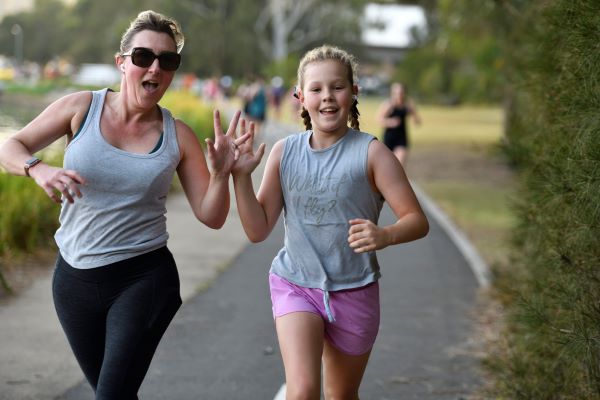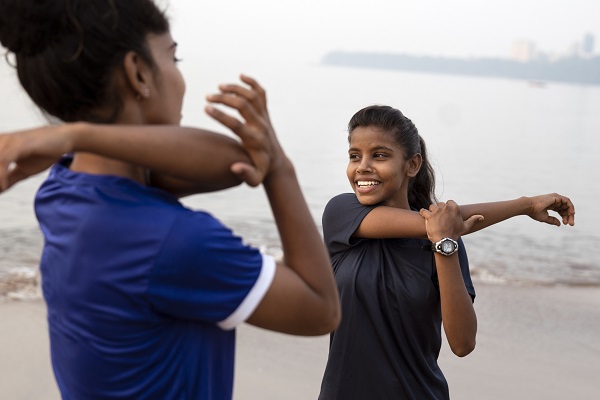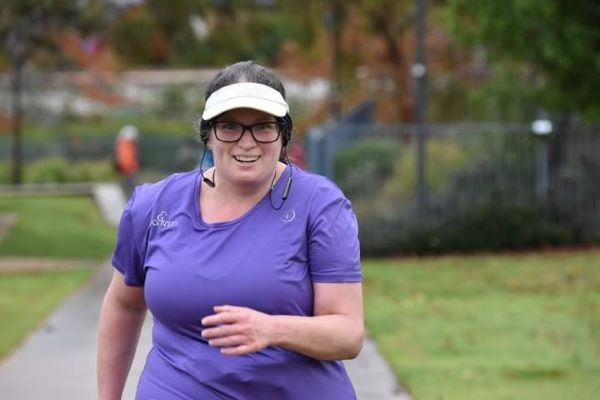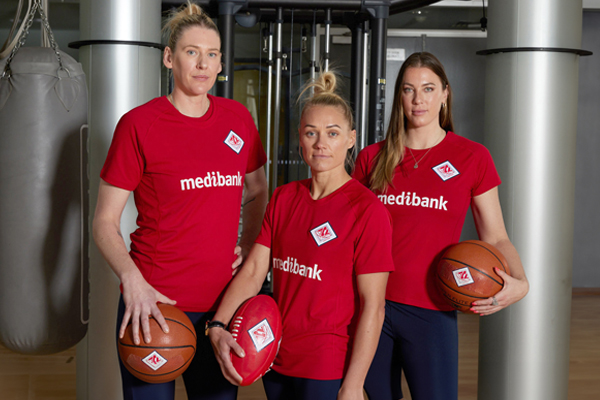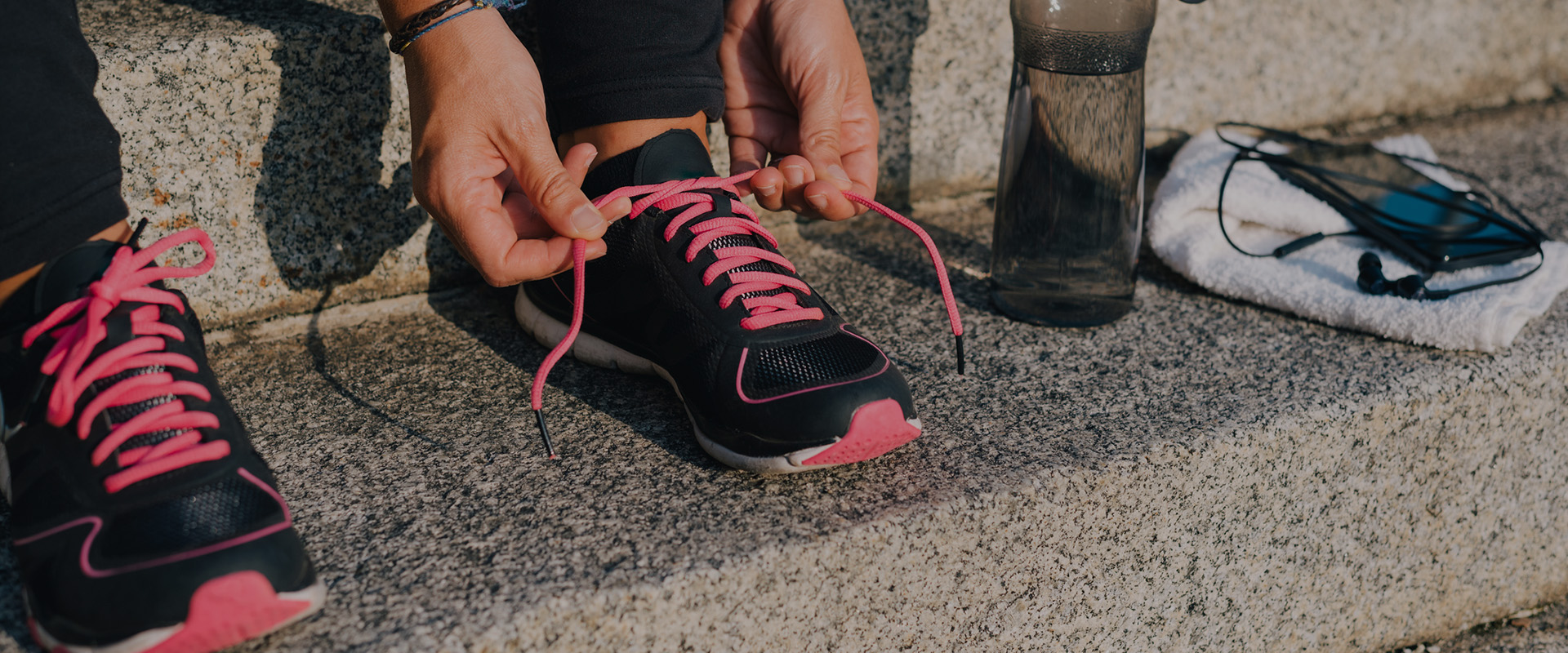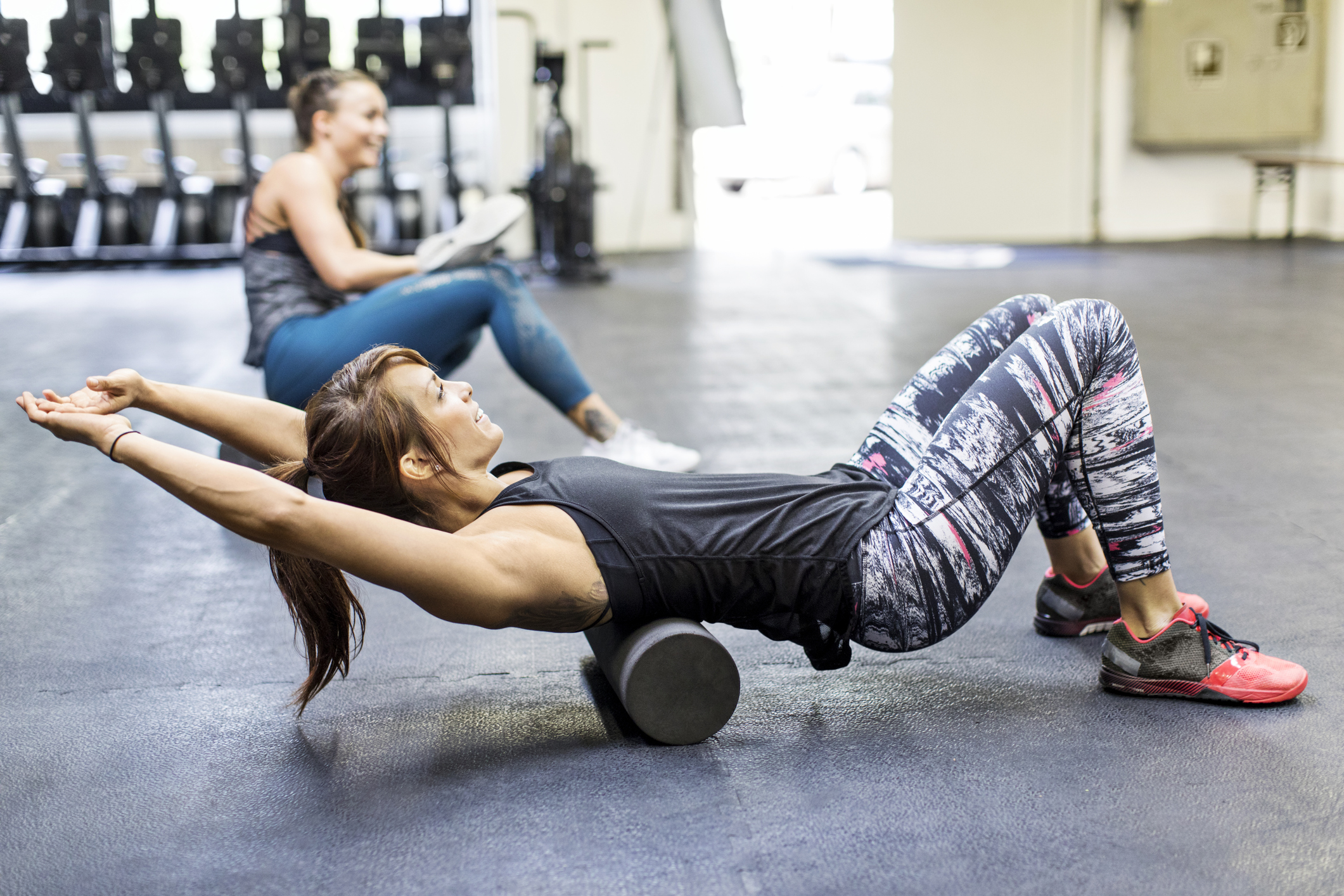-
You may have noticed that exercise can hurt. Not just during exercise but for several days afterwards. This pain is known as delayed onset muscle soreness or DOMS.
DOMS is a feature of all exercise, from gardening to mountain biking, that involves the repeated lengthening and contraction of muscles. Looking closely at the affected muscles, scientists have pinpointed the presence of many small tears in the tiny muscle fibres that make up the larger muscle groups. These small tears set off responses that are both good and bad.
The good is that the muscle releases many growth factors that are required to repair and adapt the muscle. This adaptation is necessary to build bigger, stronger and faster muscles.
The bad is that the damage to the muscle signals immune cells, so like a wound, these immune cells are activated and cause swelling and pain. So it is true there is no gain without pain.
There are many strategies to try and moderate the pain and maximize the gain. Here are a few tips for bouncing back fast.
1. Prepare
Be well hydrated before you start exercising. Becoming dehydrated increases muscle damage.
2. Warm up
Muscles take a while to become compliant and flexible. This can be achieved with a combination of gentle stretching and warming up exercises where you go through the motions slowly and without pressure.
3. Build slowly
Most severe muscle soreness follows intense and unfamiliar exercise, so it’s important to gradually build up. Exercise gradually and build up to more intense and sustained exercise as part of a lifestyle or training program.
4. Monitor your fluids
As well as drinking water before you start, make sure you stay hydrated throughout exercise. This is particularly important during the warm summer months. Remember even activities such as gardening and housework can be strenuous exercise.
5. Cool down
Slowly taper down the exercise and finish with some stretching.
6. Rest and recover
Give your muscles a chance to rest, repair and regenerate. If the pain is severe, treat muscle soreness as if it’s an injury by using the R.I.C.E technique (rest, ice, compression and elevation).
7. Take over the counter pain relief
If muscle soreness is preventing you from sleeping, careful use of gentle pain relievers can help. The pain relievers don’t improve the healing process, but having a good night sleep is vital.
8. Increase your omega-3 intake
Fish and fish oil is rich in anti-inflammatory omega-3 fats. These essential fats reduce the severity of inflammation and speed recovery.
9. Eat veggies and fruits
Antioxidant rich fruits, such as blueberries and dark cherries, reduce the level of muscle inflammation and can speed recovery.
9 post-exercise recovery tips

-
Everything you need to know about parkrun
Been wondering what a parkrun looks like? Where do you go? What do you do? How do you sign up? Find out here.
-
Five ways to exercise when on a budget
You don’t need to spend money on gym memberships just to meet your fitness goals. Here are five free ways to stay healthy and active when you’re living on a budget.
-
How parkrun changed my life
Christie Farrow went from being an exercise-phobe to a true blue runner with parkrun.
-
Australia's top female athletes unite on ACL injury
Some of Australia's most talented athletes have joined forces to highlight the unique injury challenges women face.
-
How to create your perfect summer fitness plan
Be inspired by the sunshine and get moving
-
The essential foam rolling routine
Improve posture and flexibility with this essential foam rolling routine. Discover effective stretches to ease muscle tightness and enhance your daily movement.
Subscribe to receive the best from Live Better every week. Healthy recipes, exercise tips and activities, offers and promotions – everything to help you eat, move and feel better.
By clicking sign up I understand and agree to Medibank's privacy policy

